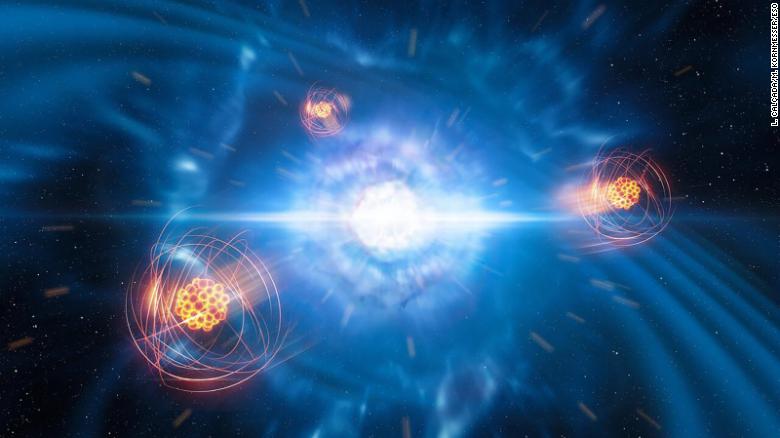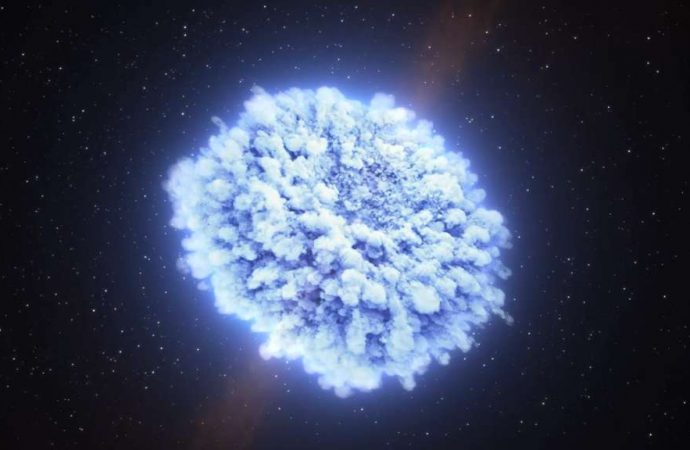Two years ago astronomers for the first time observed the collision of two neutron stars, which created gravitational waves and light and created heavy elements such as gold, platinum and lead. These elements were scattered across the universe in a kilonova — similar to a supernova — after the initial fireball.
Source: CNN
Now, astronomers have also detected strontium, a heavy element, that was freshly made in the aftermath of the collision. This discovery adds evidence suggesting that neutron star mergers can create heavy elements found throughout the universe.
Neutron stars are the smallest in the universe, with a diameter comparable to the size of a city like Chicago or Atlanta. They are the leftover remnants of supernovae. But they are incredibly dense, with masses bigger than that of our sun. So think of the sun, compressed into a major city. Now, think of two of them violently crashing into each other.
The study detailing the discovery published Wednesday in the journal Nature.
“By reanalysing the 2017 data from the merger, we have now identified the signature of one heavy element in this fireball, strontium, proving that the collision of neutron stars creates this element in the Universe,” said Darach Watson, lead study author at the University of Copenhagen in Denmark.
Strontium is an element used in fireworks and it’s heavier than iron.

Astronomers have been studying how heavy elements are created for decades. Over the years, they’ve determined which cosmic forces are responsible for different ones.
“This is the final stage of a decades-long chase to pin down the origin of the elements,” Watson said. “We know now that the processes that created the elements happened mostly in ordinary stars, in supernova explosions, or in the outer layers of old stars. But, until now, we did not know the location of the final, undiscovered process, known as rapid neutron capture, that created the heavier elements in the periodic table.”
In rapid neutron capture, neutrons are captured quickly by an atomic nucleus. In addition to the speed factor, heavy elements like strontium also need incredibly hot environments full of free neutrons. This is a natural process that happens in extreme environments. And it can unfold in less than a second.
“This is the first time that we can directly associate newly created material formed via neutron capture with a neutron star merger, confirming that neutron stars are made of neutrons and tying the long-debated rapid neutron capture process to such mergers,” said Camilla Juul Hansen, study co-author at the Max Planck Institute for Astronomy in Heidelberg.
Because the first observed neutron star collision just happened in 2017, astronomers are still understanding what happens in this process, as well as what it produces in the aftermath. Using the data from the X-shooter instrument on the European Southern Observatory’s Very Large Telescope in Chile, astronomers were able to identify the strontium signature in the wake of the neutron star collision from 2017.
Within the data from the instrument, the astronomers spotted an object with a temperature of 6,740 degrees Fahrenheit. The temperature and brightness of the object acted like a fingerprint for the element.
“We actually came up with the idea that we might be seeing strontium quite quickly after the event,” said Jonatan Selsing, study co-author and researcher at the University of Copenhagen. “However, showing that this was demonstrably the case turned out to be very difficult. This difficulty was due to our highly incomplete knowledge of the spectral appearance of the heavier elements in the periodic table.”
Source: CNN

































Leave a Comment
You must be logged in to post a comment.